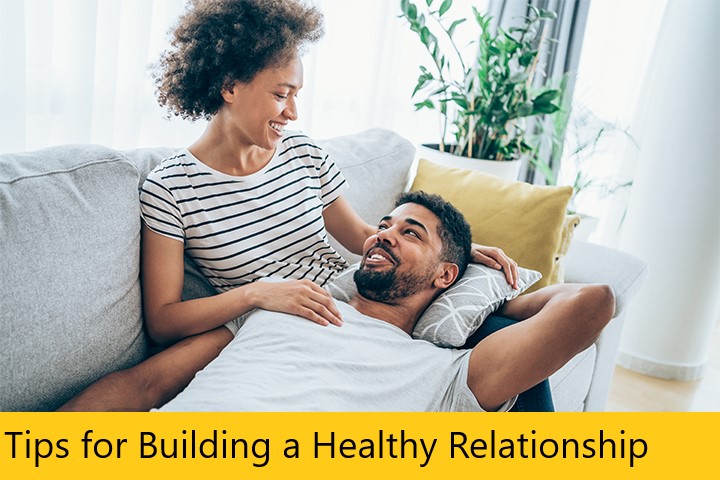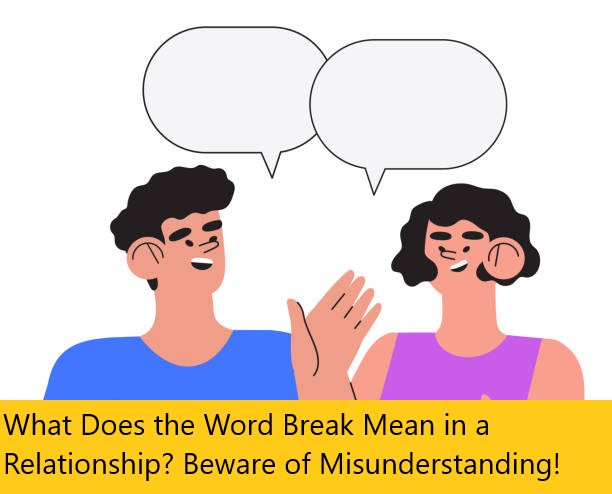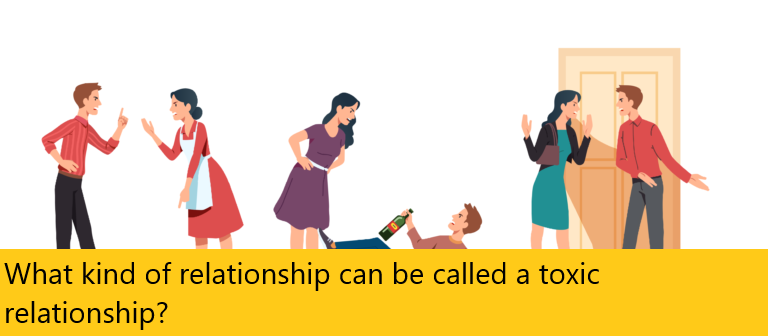Salvabrani.com – Whether you’re looking to keep a new romantic relationship strong or repair a relationship that’s on the rocks, these tips can help you feel loved and connected to your partner.
Building a healthy relationship
All romantic relationships go through ups and downs and they all take work, commitment, and a willingness to adapt and change with your partner. But whether your relationship is just starting out or you’ve been together for years, there are steps you can take to build a healthy relationship. Even if you’ve experienced a lot of failed relationships in the past or have struggled before to rekindle the fires of romance in your current relationship, you can find ways to stay connected, find fulfillment, and enjoy lasting happiness.
What makes a healthy relationship?
Every relationship is unique, and people come together for many different reasons. Part of what defines a healthy relationship is sharing a common goal for exactly what you want the relationship to be and where you want it to go. And that’s something you’ll only know by talking deeply and honestly with your partner.
However, there are also some characteristics that most healthy relationships have in common. Knowing these basic principles can help keep your relationship meaningful, fulfilling and exciting whatever goals you’re working towards or challenges you’re facing together.
You maintain a meaningful emotional connection with each other. You each make the other feel loved and emotionally fulfilled. There’s a difference between being loved and feeling loved. When you feel loved, it makes you feel accepted and valued by your partner, like someone truly gets you. Some relationships get stuck in peaceful coexistence, but without the partners truly relating to each other emotionally. While the union may seem stable on the surface, a lack of ongoing involvement and emotional connection serves only to add distance between two people.
You’re not afraid of (respectful) disagreement. Some couples talk things out quietly, while others may raise their voices and passionately disagree. The key in a strong relationship, though, is not to be fearful of conflict. You need to feel safe to express things that bother you without fear of retaliation, and be able to resolve conflict without humiliation, degradation, or insisting on being right.
You keep outside relationships and interests alive.Despite the claims of romantic fiction or movies, no one person can meet all of your needs. In fact, expecting too much from your partner can put unhealthy pressure on a relationship. To stimulate and enrich your romantic relationship, it’s important to sustain your own identity outside of the relationship, preserve connections with family and friends, and maintain your hobbies and interests.
You communicate openly and honestly. Good communication is a key part of any relationship. When both people know what they want from the relationship and feel comfortable expressing their needs, fears, and desires, it can increase trust and strengthen the bond between you.
Falling in love vs. staying in love
For most people, falling in love usually seems to just happen. It’s staying in love—or preserving that “falling in love” experience—that requires commitment and work. Given its rewards, though, it’s well worth the effort. A healthy, secure romantic relationship can serve as an ongoing source of support and happiness in your life, through good times and bad, strengthening all aspects of your wellbeing. By taking steps now to preserve or rekindle your falling in love experience, you can build a meaningful relationship that lasts—even for a lifetime.
Many couples focus on their relationship only when there are specific, unavoidable problems to overcome. Once the problems have been resolved they often switch their attention back to their careers, kids, or other interests. However, romantic relationships require ongoing attention and commitment for love to flourish. As long as the health of a romantic relationship remains important to you, it is going to require your attention and effort. And identifying and fixing a small problem in your relationship now can often help prevent it from growing into a much larger one down road.
The following tips can help you to preserve that falling in love experience and keep your romantic relationship healthy.
Tip 1: Spend quality time face to face
You fall in love looking at and listening to each other. If you continue to look and listen in the same attentive ways, you can sustain the falling in love experience over the long term. You probably have fond memories of when you were first dating your loved one. Everything seemed new and exciting, and you likely spent hours just chatting together or coming up with new, exciting things to try. However, as time goes by, the demands of work, family, other obligations, and the need we all have for time to ourselves can make it harder to find time together.
Many couples find that the face-to-face contact of their early dating days is gradually replaced by hurried texts, emails, and instant messages. While digital communication is great for some purposes, it doesn’t positively impact your brain and nervous system in the same way as face-to-face communication. Sending a text or a voice message to your partner saying “I love you” is great, but if you rarely look at them or have the time to sit down together, they’ll still feel you don’t understand or appreciate them. And you’ll become more distanced or disconnected as a couple. The emotional cues you both need to feel loved can only be conveyed in person, so no matter how busy life gets, it’s important to carve out time to spend together.
Commit to spending some quality time together on a regular basis. No matter how busy you are, take a few minutes each day to put aside your electronic devices, stop thinking about other things, and really focus on and connect with your partner.
Find something that you enjoy doing together, whether it is a shared hobby, dance class, daily walk, or sitting over a cup of coffee in the morning.

Try something new together. Doing new things together can be a fun way to connect and keep things interesting. It can be as simple as trying a new restaurant or going on a day trip to a place you’ve never been before.
Focus on having fun together. Couples are often more fun and playful in the early stages of a relationship. However, this playful attitude can sometimes be forgotten as life challenges start getting in the way or old resentments start building up. Keeping a sense of humor can actually help you get through tough times, reduce stress and work through issues more easily. Think about playful ways to surprise your partner, like bringing flowers home or unexpectedly booking a table at their favorite restaurant. Playing with pets or small children can also help you reconnect with your playful side.
Do things together that benefit others
One the most powerful ways of staying close and connected is to jointly focus on something you and your partner value outside of the relationship. Volunteering for a cause, project, or community work that has meaning for both of you can keep a relationship fresh and interesting. It can also expose you both to new people and ideas, offer the chance to tackle new challenges together, and provide fresh ways of interacting with each other.
As well as helping to relieve stress, anxiety, and depression, doing things to benefit others delivers immense pleasure. Human beings are hard-wired to help others. The more you help, the happier you’ll feel——as individuals and as a couple.
Tip 2: Stay connected through communication
Good communication is a fundamental part of a healthy relationship. When you experience a positive emotional connection with your partner, you feel safe and happy. When people stop communicating well, they stop relating well, and times of change or stress can really bring out the disconnect. It may sound simplistic, but as long as you are communicating, you can usually work through whatever problems you’re facing.
Tell your partner what you need, don’t make them guess.
It’s not always easy to talk about what you need. For one, many of us don’t spend enough time thinking about what’s really important to us in a relationship. And even if you do know what you need, talking about it can make you feel vulnerable, embarrassed, or even ashamed. But look at it from your partner’s point of view. Providing comfort and understanding to someone you love is a pleasure, not a burden.
If you’ve known each other for a while, you may assume that your partner has a pretty good idea of what you are thinking and what you need. However, your partner is not a mind-reader. While your partner may have some idea, it is much healthier to express your needs directly to avoid any confusion.
Your partner may sense something, but it might not be what you need. What’s more, people change, and what you needed and wanted five years ago, for example, may be very different now. So instead of letting resentment, misunderstanding, or anger grow when your partner continually gets it wrong, get in the habit of telling them exactly what you need.
Take note of your partner’s nonverbal cues
So much of our communication is transmitted by what we don’t say. Nonverbal cues, which include eye contact, tone of voice, posture, and gestures such as leaning forward, crossing your arms, or touching someone’s hand, communicate much more than words.
When you can pick up on your partner’s nonverbal cues or “body language,” you’ll be able to tell how they really feel and be able to respond accordingly. For a relationship to work well, each person has to understand their own and their partner’s nonverbal cues. Your partner’s responses may be different from yours. For example, one person might find a hug after a stressful day a loving mode of communication—while another might just want to take a walk together or sit and chat.
It’s also important to make sure that what you say matches your body language. If you say “I’m fine,” but you clench your teeth and look away, then your body is clearly signaling you are anything but “fine.”
When you experience positive emotional cues from your partner, you feel loved and happy, and when you send positive emotional cues, your partner feels the same. When you stop taking an interest in your own or your partner’s emotions, you’ll damage the connection between you and your ability to communicate will suffer, especially during stressful times.
Be a good listener
While a great deal of emphasis in our society is put on talking, if you can learn to listen in a way that makes another person feel valued and understood, you can build a deeper, stronger connection between you.
There’s a big difference between listening in this way and simply hearing. When you really listen—when you’re engaged with what’s being said—you’ll hear the subtle intonations in your partner’s voice that tells you how they’re really feeling and the emotions they’re trying to communicate. Being a good listener doesn’t mean you have to agree with your partner or change your mind. But it will help you find common points of view that can help you to resolve conflict.
Manage stress
When you’re stressed or emotionally overwhelmed, you’re more likely to misread your romantic partner, send confusing or off-putting nonverbal signals, or lapse into unhealthy knee-jerk patterns of behavior. How often have you been stressed and flown off the handle at your loved one and said or done something you later regretted?
If you can learn to quickly manage stress and return to a calm state, you’ll not only avoid such regrets, but you’ll also help to avoid conflict and misunderstandings——and even help to calm your partner when tempers build.
Tip 3: Keep physical intimacy alive
Touch is a fundamental part of human existence. Studies on infants have shown the importance of regular, affectionate contact for brain development. And the benefits don’t end in childhood. Affectionate contact boosts the body’s levels of oxytocin, a hormone that influences bonding and attachment.
While sex is often a cornerstone of a committed relationship, it shouldn’t be the only method of physical intimacy. Frequent, affectionate touch—holding hands, hugging, kissing—is equally important.


